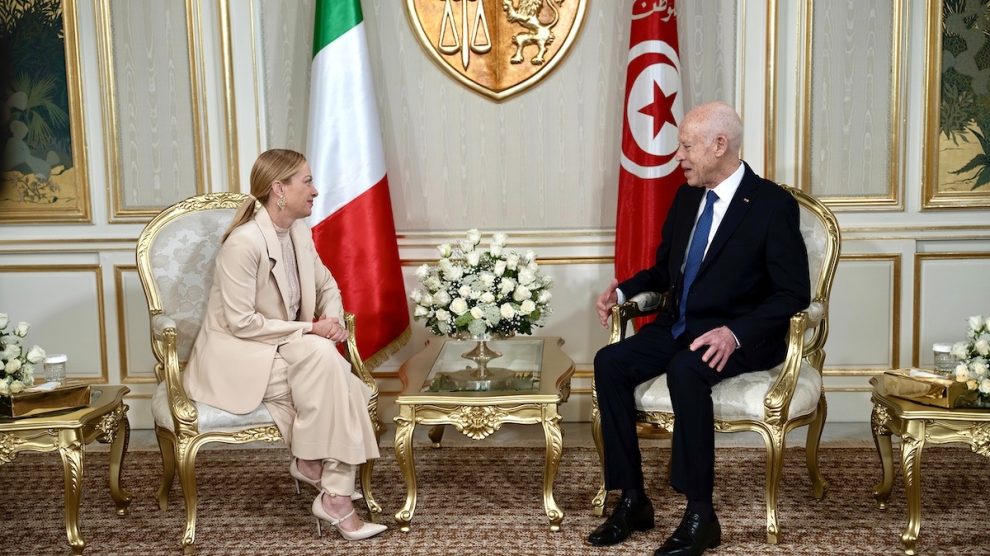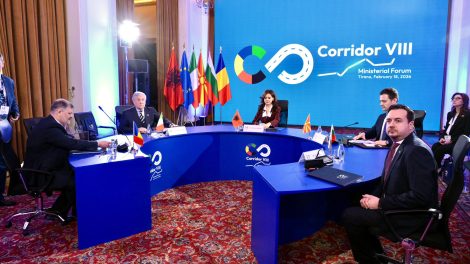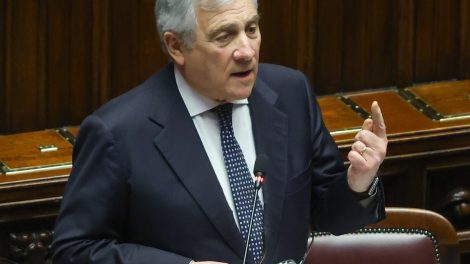Decoding the news. The two back-to-back visits are part of a broader, continuous diplomatic strategy to strengthen the Mediterranean axis. Italy seeks to contain instability in Libya, counter Russian influence, and manage medium-term migration flows.
- There are clear points of intersection—most notably, the pursuit of regional stability across the Mediterranean and North Africa, an effort in which Rome, Ankara, and Tunis all play essential roles.
Details from Tunisia. Upon arrival at Tunis-Carthage International Airport, Meloni was welcomed by Prime Minister Sarra Zaafrani Zanzri, the Governor of Tunis, and Italy’s Ambassador to Tunisia, Alessandro Prunas.
- She met with President Kais Saied at the Presidential Palace in Carthage, reaffirming the solidity of the bilateral relationship and its potential for further enhancement under the Mattei Plan.
- Key discussion points included development cooperation (underpinned by the joint declaration signed in January), the water-agriculture nexus (notably the TANIT project), the upcoming regional agricultural training centre, and migration management.
- Energy was also central: the ELMED interconnector was framed as a strategic infrastructure project, alongside the Terna Innovation Zone, a new energy-sector training and innovation platform.
- The issue of legal migration pathways was also raised within the framework of the Rome Process—a driving force in Italy’s regional diplomacy.
Between the lines. Meloni is working to build a “Mediterranean coalition” with partners like Turkiye, which in recent months has expanded its already considerable influence in Libya, maintaining a stronghold in Tripoli and Misrata, while engaging directly with eastern leader Khalifa Haftar in the Cyrenaica region.
- According to an exclusive by Agenzia Nova, Libya’s Government of National Unity leader Abdelhamid Dabaiba is also expected to be in Istanbul tomorrow.
Put it in context. Turkiye is now Libya’s most active external player across military, economic, and diplomatic fronts. Libya’s stability is a geopolitical hinge that shapes the broader North African balance, with implications for Tunisia, Algeria, and Egypt, Russian influence in the East region, and trans-Mediterranean migration from deep within the African continent.
- Italy’s relationship with Tunisia revolves around migration and energy, supported by long-term, structural projects.
- Rome’s engagement with Turkiye is broader and even more strategic, including defence and industrial cooperation and regional geopolitics.
- Libya will be a central topic in tomorrow’s talks, with Italy aiming to leverage renewed U.S. attention on the dossier—a subject already addressed by Foreign Minister Antonio Tajani during his recent visit to Washington.
What we’re watching. Following the meeting with Saied, tomorrow’s visit to Ankara will aim to reinforce trans-Med cooperation in managing regional (in)stability and shaping a shared security architecture.
- Stability remains the crucial precondition for both the advancement of the Mattei Plan and a sustainable governance of migration flows.





